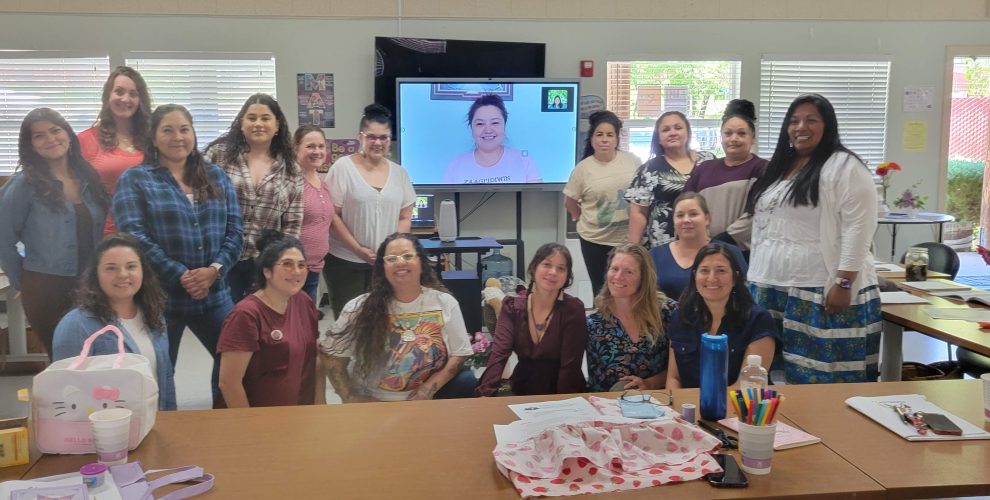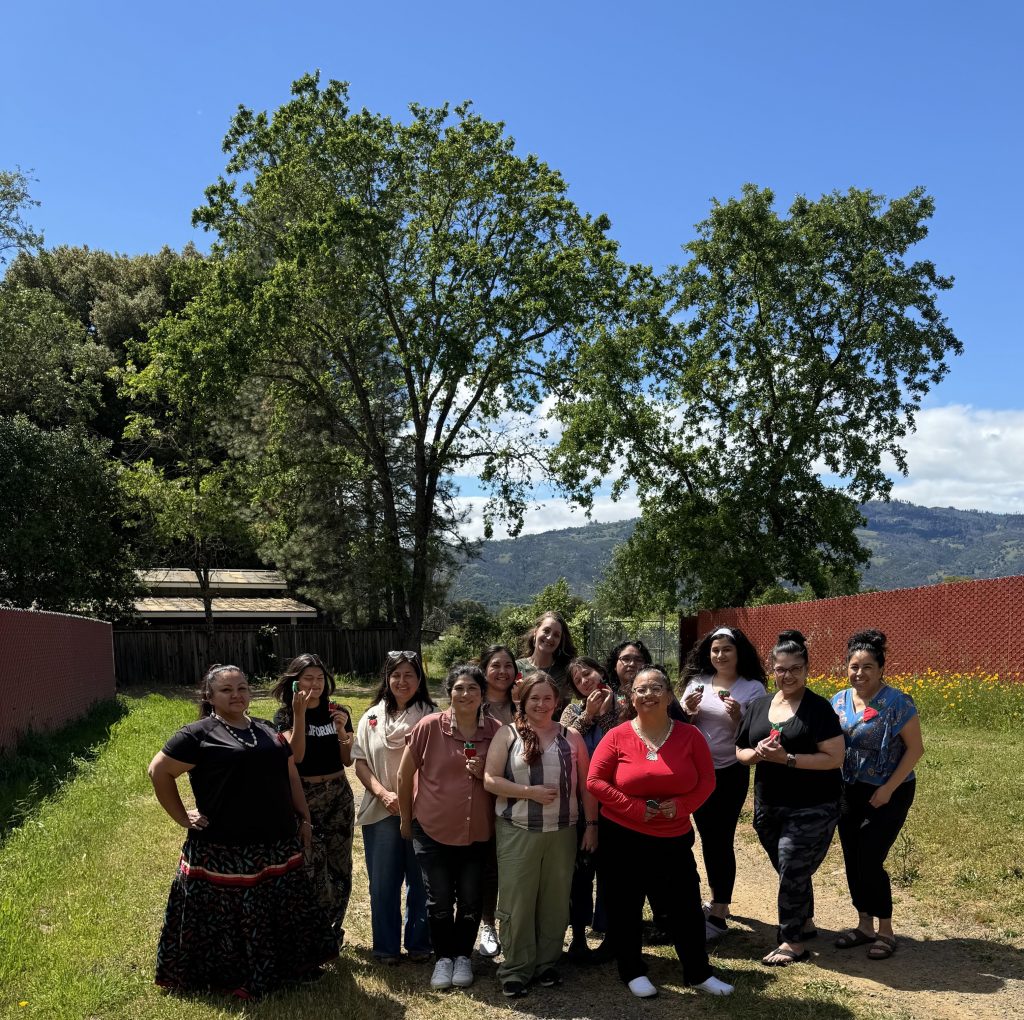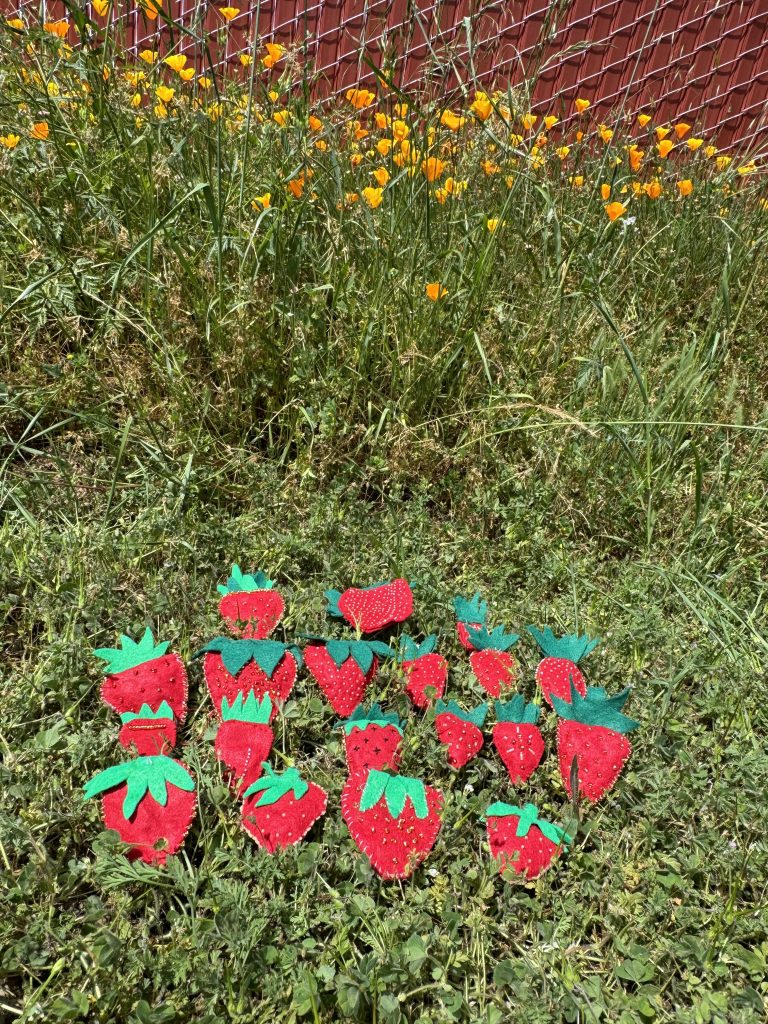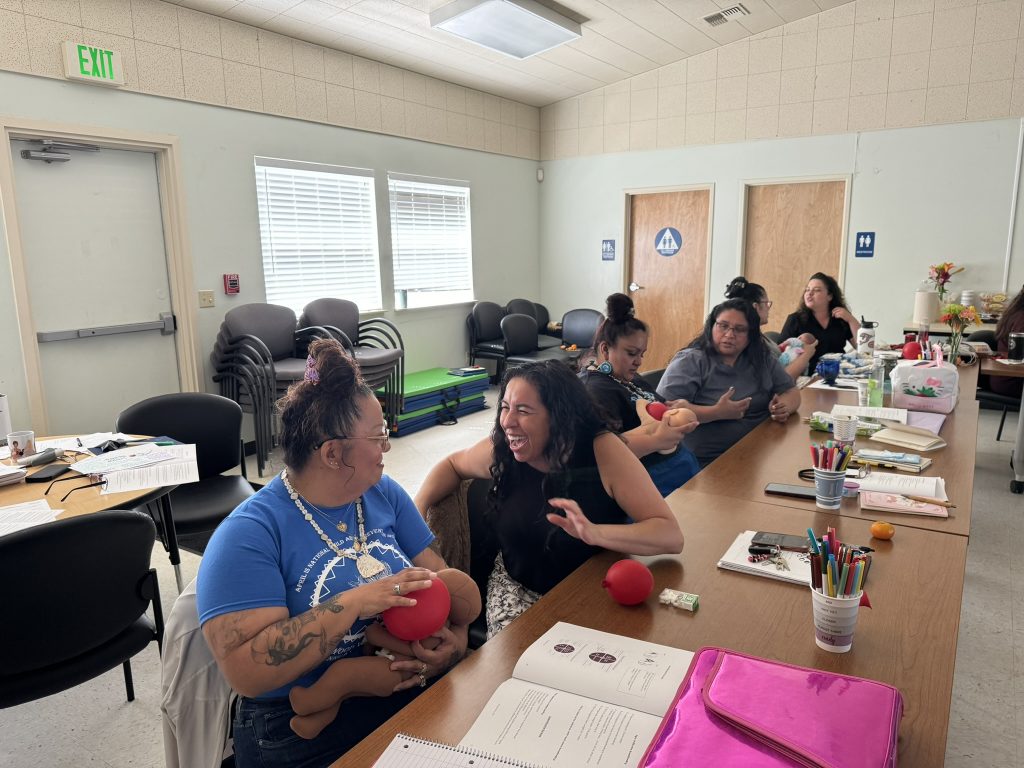New Indigenous Doulas Train to Diversify Support for Mendocino Families

First 5 Mendocino held a training for Indigenous Doulas with Melissa Brown of Zaagi’idiwin! From around Mendocino County, 14 Indigenous Doulas and 4 allies attended this training at the beautiful Redwood Valley Rancheria Learning Center.

Melissa is a Dine and Anishinaabe Midwife, a Registered Midwife and an Indigenous Doula Trainer. Zaagi’idiwin is her training organization. Local Indigenous Cultural Practitioners- Rose Steele and Martina Morgan supported the training by sharing local birth, cultural traditions, and practices of Tribal communities including the Elem, Yokayo, Pomo, and Kashia Band of Pomo.
Wait a minute . . . what’s a doula?
To learn more about doulas, check out our previous blog posts.
Why Train Indigenous Doulas?
For equity and justice! Mendocino County has the 3rd highest percentage population of Indigenous People in California. In the US and in the Mendocino area, more Indigenous babies are born with low birth weight, preterm, without adequate prenatal care, and with lower rates of breastfeeding. More on that below. Doulas can help improve birth outcomes and reduce the effects of systemic racism and bias that lead to these differences in outcomes.
Indigenous Doulas to Improve Equity

Exposure to racism and bias and downstream effects like challenging social and economic conditions- cause inequities– differences in outcomes that are unfair and unjust. Exposure to these conditions causes high levels and long periods of stress that lead to more health inequities. Indigenous and Black people experience inequities starting with birth. In rural communities, transportation and other difficulties can make it even harder to get care. This leads to untreated and undertreated health conditions which can mean more babies being born too early, too little or large, and even lead to the higher rates of maternal and infant deaths- 2-4 times higher than they are for white birthing people. But connection to culture and support can help.
Doulas who come from and understands your culture can make the biggest difference around birth outcomes. Having Indigenous Doulas support Indigenous Birthing People can reduce stress levels and the health outcomes related to toxic stress. They reduce the effects of systemic racism to improve outcomes. That’s why we offered this specific doula training- to support local Indigenous People to become doulas and to have culturally connected support for birthing people.
About the Indigenous Doula Training
Some wisdom and teachings Melissa, Martina, and Rose shared included:

- an introduction to birth
- cultural birth practices and history
- support skills for birth and lactation.
- the importance of bodily autonomy and informed decision making.
- trauma and trauma informed care
- grief and Loss
- pregnancy, labor and birth
- postpartum
- caring for the caregiver
More to Come
One training is a start. We’ll continue to support the growing Mendocino Doula Collective with training, mentorship, a new page on our website with links to doulas, and more. Please stay in touch by following us here and on Facebook and Instagram.
Our Thanks
Thanks to the Redwood Valley Rancheria and the Little River Band of Pomo for sharing their beautiful space.
The cultural sharing and storytelling offered by Rose Steele and Martina Morgan created deep cultural connections throughout the training. Thank you both for your contributions.
And of course, Melissa Brown, thank you for your teaching!
To develop and diversify the doula community, First 5 Mendocino sponsored this training so there were no training costs to the doulas. Funding support from our First 5 Regional Home Visiting TA contract and a grant from the Arlene and Michael Rosen Foundation contributed to the training. We thank the funders who made this possible.

